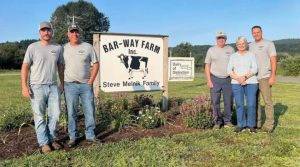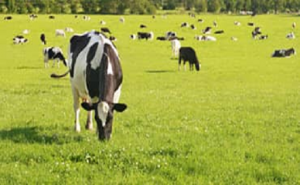
The session is the first in a series of U.S.-French agricultural policy dialogues that the U.S. embassy plans to convene with the Farm Foundation in order to foster greater understanding as the EU develops its Farm to Fork policies on food production, consumption and trade.
U.S. Ambassador to France Denise Campbell Bauer opened the event by underscoring the importance of building stronger understanding and relationships on agricultural issues between the U.S. and Europe. The dairy industries in the two markets share many defining values. Both produce sustainable, high-quality products under rigorous food safety standards, and both play a crucial role in ensuring global food security and affordability. However, different approaches and the rapidly evolving policy landscape in Europe can create deeper trade challenges.
“The U.S. and European dairy industries are both deeply committed to advancing sustainable high-quality dairy production, but naturally those efforts are distinct,” said USDEC President and CEO Krysta Harden. “A strong Transatlantic relationship is more important than ever, which is exactly why policymakers should focus on how to further streamline dairy trade between our two markets and ensure that new regulations under consideration respect how vital, yet diverse global dairy production is. Trade needs to be a two-way street and right now US-EU dairy flows are already largely a one-way direction.”
At a reception directly following the event, USDEC treated attendees to a sampling of 50 U.S. cheeses, including award-winning parmesan, asiago, cheddar and other varieties. Several of the cheeses were also featured in USDEC’s Dairy Pavilion booth at the SIAL food trade show in Paris which USDEC’s Angelique Hollister, senior vice president of global cheese marketing, and Merle McNeil, senior vice president of global cheese retail program, organized.
While in Europe, Harden, joined by Shawna Morris, senior vice president of trade policy for USDEC and NMPF, and Nick Gardner, senior vice president of sustainability and multilateral affairs for USDEC, also met with policymakers and agricultural partners in both Paris and Brussels to explore areas of common ground and discuss the future of U.S.-EU trade.
These events and meetings underscore USDEC’s continued commitment to working with European allies to develop fair rules for trade, pursue workable sustainability policies, all while introducing more consumers to the high quality of U.S. dairy products.
























